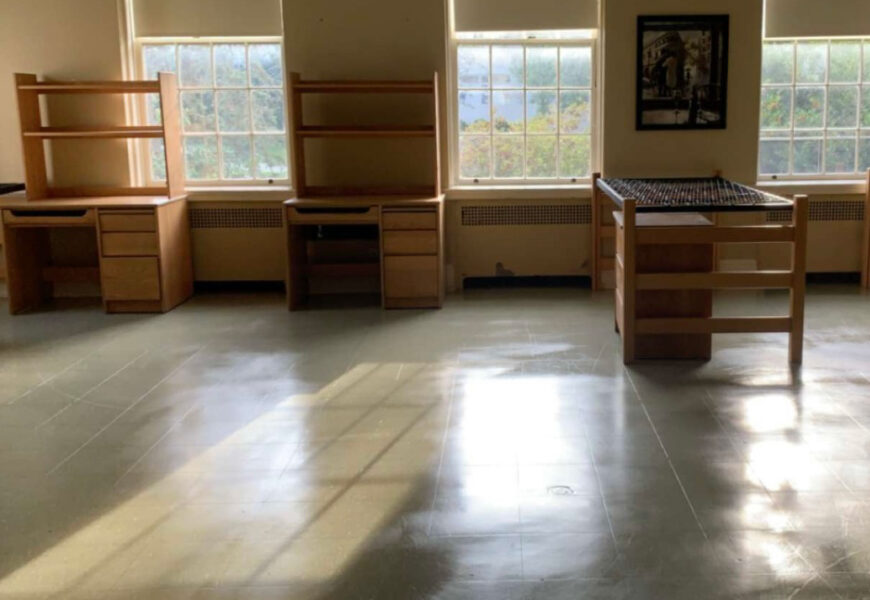Photo courtesy of Sohan Mewada.
It’s hard to feel like an adult living in a dorm room. It’s easier to dismiss hearing the muffled sounds of your neighbor’s speaker reverberate through your wall late at night as you try to study for an exam, or finding droplets of urine left behind on the communal bathroom toilet seat as “part of the college experience” during freshman or sophomore year than when you’re only one or two years out from facing the real world (or grad school).
In regular times, the River Ridge, Winchester, and Mohegan 360 apartments (as well as Freeman Tower and the Park Apartment) have been the only way for Connecticut College students to avoid four years of dorm-style living. Many of these apartments have double and triple rooms, which can be alienating to some upperclassmen who want their own space, but nevertheless, these apartments are quite popular among the student population as they have personal kitchens, bathrooms, and most importantly, offer the opportunity to host parties. They generally require very high group lottery averages to be obtained. This year, the College received 69 applications to live in these alternative housing options. That’s 69 groups, not individuals. Out of these groups, 24 were approved. Plenty of seniors had eagerly awaited the opportunity to live in one of these apartments, but only a fraction were able to. “I was disappointed that even with a good senior number, I wasn’t able to get an apartment with friends”, says rising senior Ben Fort ’22.
However, this year is no regular year, as the number of students studying abroad has been greatly reduced due to the pandemic, more students are expected to be on-campus than ever before. To meet the need for on-campus housing for underclassmen, off-campus living was unexpectedly made available for seniors and juniors for the upcoming year. In the first round of applications, the college stated that they “approved approximately 45 students to live off-campus”, but this was not enough. A July 1 email stated that the college needed “approximately 30 more students to live off-campus in order to achieve on-campus capacity this coming year,” but it was evident from following emails that not enough students were looking to move off-campus. In the weeks following this email, off-campus was made available to sophomores, but this did not solve the college’s problem.
As appealing as apartment living was, any place a student would realistically end up would leave them somewhat removed from campus. While there were students like Fort who had wanted an on-campus apartment, off-campus living did not have the same appeal. “If there was a good apartment building walking distance from the college, that would have been interesting to me, but having to get in the car any time I had to go to class or go to the library didn’t sound that great.”
Backed into a corner by the wave of unhoused students headed to campus, the administration announced in a July 20 email that they were “creating more opportunities for students to live together by converting several common rooms across campus to residence hall rooms. Spaces in Blackstone, Burdick, Smith, KB, Windham, Knowlton and Freeman will be converted to bedrooms (ranging from 2-6 people based on size)”. This decision may or may not have a negative impact on dorms like Knowlton, which in the past has hosted many events in its common room. Regardless, this year’s housing dilemma seems to have been solved. One wonders, however, if there can’t be more done to satisfy student needs in the future, especially considering that the college recently became 30 million dollars richer. If common rooms can be repurposed, why not knock out some of the walls in a much-maligned dorm like Lazrus, and turn it into a set of on-campus apartments? “Nobody wants to live in Lazrus,” Fort commented, “you can quote me on that”. Clearly, more options in that vein would lead to a more satisfied student body, as opposed to taking away common rooms and stuffing them with as many freshmen as possible. Maybe if the college can find a way to use its newly acquired funds to accommodate students who don’t want to spend all four years as dorm residents while allowing them to stay on or near campus, the so-called “biggest announcement in college history” may actually live up to its name.










